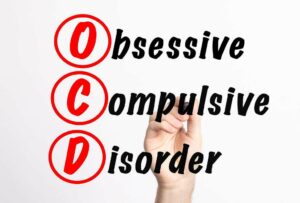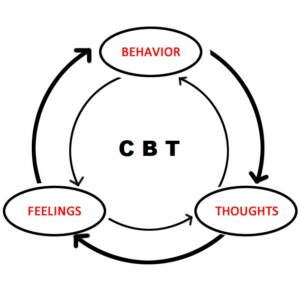Obsessive-Compulsive Disorder (OCD) is an anxiety disorder that can make it difficult to lead a normal life. People with OCD often experience recurring and intrusive thoughts, as well as compulsive behaviors that can interfere with their daily activities and relationships. While OCD can be a challenging condition to manage, there are ways to effectively fight the obsessions and compulsions associated with the disorder. From cognitive behavioral therapy to lifestyle changes and more, this article will explore different tips for fighting OCD and improving your quality of life.
Contents
What is OCD?

Obsessive Compulsive Disorder, or OCD, is an anxiety disorder that causes people to have unwanted and intrusive thoughts (obsessions) that they feel the need to compulsively act out (with compulsions). People with OCD often have very specific rituals or routines that they feel they must complete to ease their anxiety. These rituals can be time-consuming and interfere with daily life.
There are different types of OCD, and each type may require different treatment methods. Here are some different types of OCD:
- Pure O: This type of OCD is characterized by obsessive thoughts, but not necessarily any outward compulsions. Treatment for Pure O may include therapy and medication.
- Relationship OCD: This type of OCD is focused on relationships, and may involve obsessing over whether or not a relationship is healthy or “perfect”. Treatment for relationship OCD may include therapy to help the individual learn to manage their anxiety around relationships.
- Contamination OCD: This type of OCD is characterized by a fear of contamination, and may involve compulsively washing or cleaning in an attempt to avoid contaminants. Treatment for contamination OCD may include exposure therapy, where the individual is gradually exposed to the feared contaminant in a controlled setting.
- Symmetry/Orderliness OCD: This type of OCD is characterized by a need for things to be symmetrical or in perfect order. Treatment for symmetry/orderliness OCD may include exposure and response prevention (ERP), where the individual is exposed to the trigger (e.g., a messy room) without performing the compulsion (e.g., cleaning).
Is There a Need For Fighting OCD?
The need for fighting OCD is real. OCD can have a devastating effect on people’s lives, affecting their relationships, career, and day-to-day functioning. Even mild forms of OCD can lead to financial problems, difficulty with social situations, and even suicidal thoughts. It is important to recognize the need for seeking help to effectively combat OCD.
Some people may not be aware of how serious their OCD can be, or that they even have it in the first place. People with OCD often feel ashamed and embarrassed to talk about their struggles, believing that no one else has it as bad as they do. This is why it is important for those affected by OCD to seek out counseling and psychotherapy sessions to help them recognize and manage their symptoms.
Tips for fighting OCD

If you are struggling with OCD, know that you are not alone. Many people face similar challenges and there is hope for recovery. Here are some tips for fighting OCD that may help you on your journey:
Understand Your Triggers
What sets off your OCD thoughts and behaviors? Once you know your triggers, you can start to develop a plan for how to deal with them. One of the most effective strategies is to avoid putting yourself in situations that could trigger your OCD. For example, if cleaning is your trigger, limit the amount of time you spend doing it and find other activities to do instead.
Stay Present
Remind yourself that the fear-inducing thoughts and sensations brought on by OCD will pass. Staying focused in the present moment helps keep these intrusive thoughts at bay and allows you to stay grounded. Mindfulness techniques such as yoga and meditation can also help stay present.
Reach Out for Help
If you are struggling with OCD, don’t hesitate to reach out for help from a mental health professional or support group. You don’t have to face this challenge alone – some people can support you in your recovery and provide guidance.
Find Healthy Coping Strategies
It is important to find healthy ways to cope with the anxiety caused by OCD. Exercise, journaling, or listening to music can all be great outlets for releasing stress. Finding activities that help keep your mind occupied can also be beneficial in managing intrusive thoughts.
Be Patient
One of the most important tips for fighting OCD is to practice patience. Recovery takes time and progress may be slow, but each step forward is a victory. Allow yourself to take breaks if you need them and keep in mind that every setback is not a sign of failure.
Fighting OCD can be challenging, but it is possible to manage symptoms and lead a happy and fulfilling life. Recognizing the need for help, understanding your triggers, staying present at the moment, reaching out for support, finding healthy coping strategies, and practicing patience are all essential steps on the road to recovery.
Different Ways For Fighting OCD
There are many different types of OCD and it can be hard to know when you should seek professional help. If your OCD is having a significant impact on your life then it is probably time to see a doctor. This could include if your OCD is causing you distress, stopping you from going to work or school, or if you are resorting to harmful behaviors like self-harm or drug abuse. If you are unsure whether your OCD is severe enough to warrant seeing a doctor, consider talking to a mental health professional for guidance.
There are different ways for fighting OCD, including :
Cognitive Behavioral Therapy

One of the most successful treatments for OCD is Cognitive Behavioral Therapy (CBT). This type of therapy focuses on changing how you think and act to reduce symptoms. During CBT, your therapist will help you identify and challenge irrational thoughts that lead to obsessive behaviors. They will also teach you coping skills such as relaxation techniques, problem-solving, and positive self-talk so that you can better manage your worries and anxieties.
Exposure and Response Prevention
Exposure and Response Prevention (ERP) is another common treatment for OCD. ERP involves gradually exposing yourself to situations or objects that make you anxious while avoiding any compulsions or rituals associated with the obsession. For example, if you have a fear of contamination, your therapist might have you hold a doorknob that you normally try to avoid. Over time, this will help you become more comfortable with the situation and reduce your anxiety.
Medication
Medication can also be used to effectively treat OCD. Certain types of antidepressants such as Selective Serotonin Reuptake Inhibitors (SSRIs) are commonly prescribed for symptoms related to OCD. These medications work by increasing levels of serotonin, which is a neurotransmitter involved in regulating mood and behavior. It may take several weeks or even months before you start to notice an improvement in your symptoms. However, it is important to stay on track with taking your medication and report any side effects or changes in your condition to your doctor immediately.
Support Groups
An important part of managing OCD is connecting with other people who have similar experiences. Joining an online or in-person support group can help you feel less alone and more empowered to manage your symptoms. These groups provide a safe and understanding space for people to share tips, ask questions, and gain strength from each other’s stories.
Holistic Treatments
Also, certain holistic treatments can be used to help manage OCD. These include meditation, yoga, and mindfulness-based stress reduction (MBSR). These methods may not eliminate your symptoms, but they can help you develop healthier and more effective ways of responding to them. Additionally, many people find that participating in activities such as art therapy or music therapy can provide a creative outlet for managing their anxiety and obsessive thoughts.
Lifestyle Changes

One of the best ways to manage OCD is to make lifestyle changes. This includes eating a nutritious diet, getting enough sleep, exercising regularly, and avoiding substances such as alcohol or drugs. Additionally, it can be helpful to practice relaxation techniques like deep breathing or progressive muscle relaxation to reduce stress levels. Lastly, it’s important to find support from family and friends who can help you stay motivated and accountable for managing your OCD symptoms.
No matter what treatment you choose for your OCD, remember that recovery is possible! With the right help and support, you can learn how to manage your symptoms so that they no longer control your life. Good luck!
Conclusion
Living with OCD is a challenge, but it’s not insurmountable. With the right tools and support system in place, you can manage your symptoms and gain control over your life again. The tips outlined above are just some of the strategies that have been proven to help individuals cope with their OCD. If you’re looking for more information or would like to discuss ways to fight OCD with an expert, look into speaking with a mental health professional today. Remember – there is always hope!
For more information and guidance, please contact OCDMantra. OCD is a mental health disorder characterized by obsessions and compulsions. If you have any queries regarding OCD treatment, ERP therapy experienced therapists at OCDMantra can help: Book a trial OCD therapy session


